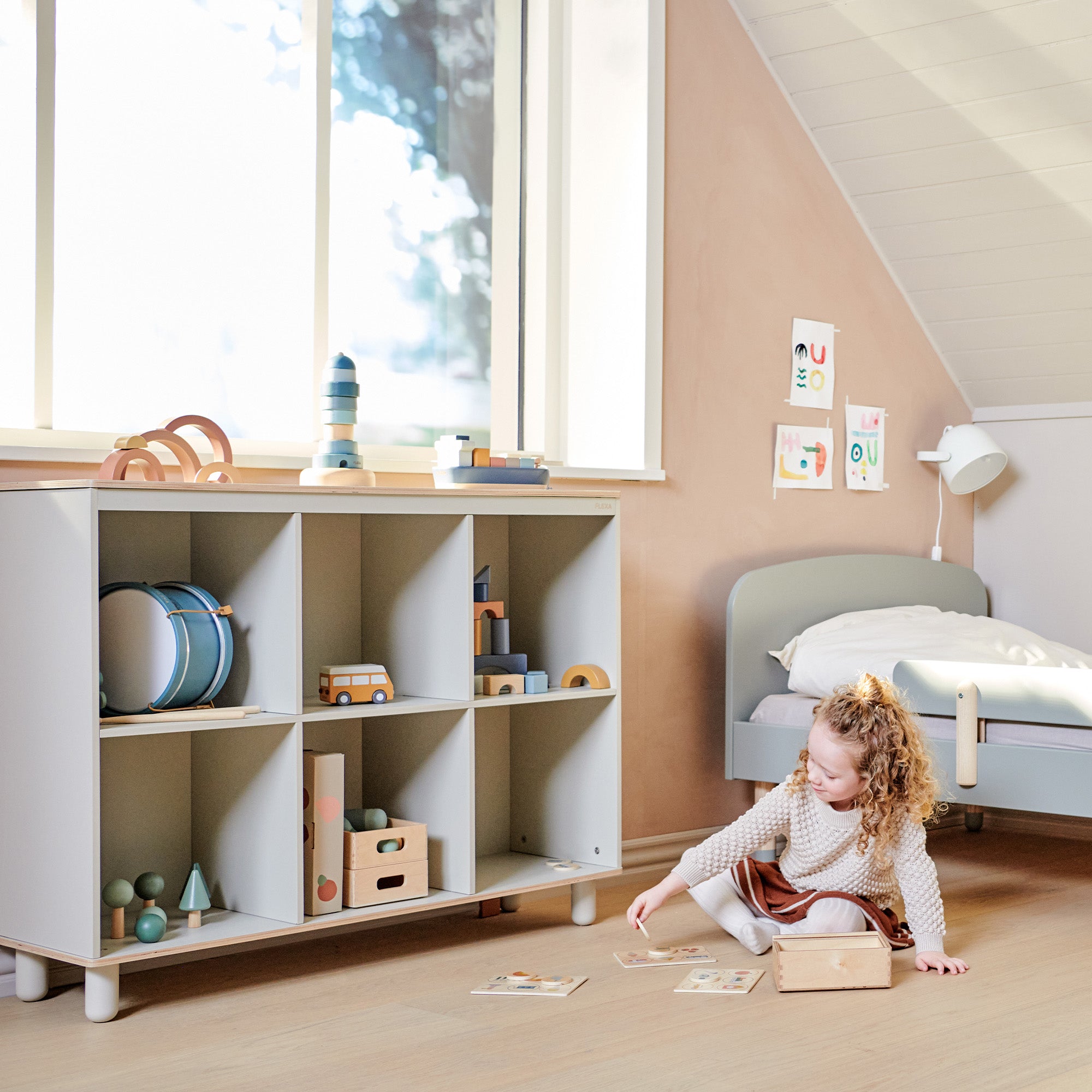Children’s toys take up more space than you’d think. Before you know it, your child’s teddy bears seem to have jumped off the shelves and made their way onto the floor, where they get all mixed up with your child’s books, building blocks, colouring crayons, and puzzle pieces. But toy clutter is a party killer – for children as well as their parents. So, sit back and read, once and for all, how to get your child’s toy collection under control.
Highlights:
Family advisor, Lola Jensen, shares her five best toy organising tips:
- It’s easier to accept a mess if the mess is made up of really useful things.
- The trick is to find a happy medium between tidy and not too tidy.
- Ease the number of toys in the living room by rotating toys into your child’s room.
- Categorise your child’s toys by type: cars with car tracks, road signs, etc.
- Playroom furniture with built-in storage options saves you a lot of space.
Below, family advisor Lola Jensen shares her five best toy organising tips. Follow her simple step-by-step guide for a (bit) more organised life with kids:
Select Useful Toys
Let’s face it, children who play make a mess. What you can do is try to accept it and, when you can, select toys that also make you a little happy. For instance, it’s much easier to accept a puzzle in the middle of the dining table if you know it helps to develop your child. The same goes for your child’s building blocks, musical instruments, car tracks, and play food. Perhaps it’s okay for things to get a little messy, as long as each individual thing is valuable for your little one?
Let’s Tidy Up – But Not Too Much!
With children, it’s a delicate balance between getting stuff too organised and not enough organised. Too organised and your child might find it hard to think of a new game to play, simply because all their toys are invisible or out of reach. The other way around, if all the toys are scattered all over the floor, it can be hard for your child to get a good overview, let alone stay focused on their game. So go for the happy medium: tidy, but not too tidy.
Rotate your Child’s Toys
Children prefer to be where their parents are, even when it’s playtime and they’re playing alone. So, it makes sense to decide on a corner of your living room and transform it into a play area for your little one. Let the boxes with your child’s toys rotate between their bedroom and their new play area in the common room. Of course, your child is free to go get things, but it will most likely reduce the number of toys in your living room and inspire your child to re-discover their own toys.
Categorise Toys by Type
Bookcases, boxes, and containers of varying sizes are essential when organising your child’s play items. Store all your child’s cars in one box, along with accessories like car tracks and road signs. All the little pieces of your child’s doctor’s kit go into the matching medical case. And so on. With everything in their right place, your little one can easily go find things – without even asking for help. Win-win! Only when the contents get too mixed up, you sort and categorise again.
Go for Multifunctional Furniture
Playroom furniture with multi-functional features save you a lot of space. A drawing table, for example, could be just a child-sized table. Or it could be a table with built-in jars for your child’s colouring crayons and a shelf underneath to store papers, rulers, watercolours, and the like. The latter version lets you gather all your child’s drawing items in one place, so your little one can sit right down and begin drawing when they feel like it. So, go for multifunctional furniture with room for storage.

